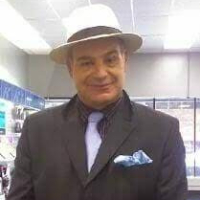 Brea Felony Lawyers, California
Brea Felony Lawyers, California
Sponsored Law Firm
-
 x
x

Click For More Info:
-
Orange County Criminal Attorney Law Firm
4000 MacArthur Blvd Suite 621 East Tower Newport Beach, CA 92660» view mapCriminal Defense Proudly Serving Orange County
You need an attorney with criminal defense knowledge who will vigorously protect your rights and interests.
800-956-1140
Sponsored Lawyers
1-3 of 3 matches
Criminal, Felony
Antonio J. Bestard has 40 years of experience, and is prepared to manage the complexity issues of criminal law. Mr. Bestard is Certified Legal Specialist in Criminal Law, and is fluent in Spanish. He has been an active member of the State Bar of California since 1976. He is a member of the California Attorneys for Criminal Justice.
(more)



 Michael Holmes Newport Beach, CA
Michael Holmes Newport Beach, CA AboutOrange County Criminal Attorney Law Firm
AboutOrange County Criminal Attorney Law Firm Practice AreasExpertise
Practice AreasExpertise

